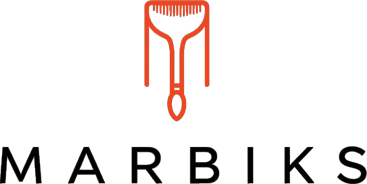In today’s digital age, websites like iofbodies.com ethics raise important ethical questions regarding privacy, consent, and data security. As technology advances, the line between convenience and exploitation becomes increasingly blurred. Therefore, it is crucial to examine the ethical framework surrounding such platforms.
This blog post will delve into the moral implications of IOFBodies.com, discussing key concerns such as user consent, data protection, and corporate responsibility. Additionally, we will explore best practices for maintaining ethical standards in the digital space.
Understanding IOFBodies.com
Before analyzing its ethics, it’s essential to understand what IOFBodies.com is. While specifics about the site may vary, platforms of this nature often involve user-generated content, data collection, and online interactions.
However, the ethical dilemma arises when considering how this data is used, stored, and shared. Transparency is key, yet many websites fail to provide clear policies, leading to potential misuse.
Key Ethical Concerns
1. Privacy and Data Security
One of the most pressing ethical issues is user privacy. Many websites collect sensitive data without explicit consent, putting individuals at risk of breaches, identity theft, and unauthorized sharing.
-
Does IOFBodies.com encrypt user data?
-
Are users informed about data collection practices?
-
How is third-party sharing handled?
Without strict data protection measures, users remain vulnerable to exploitation.
2. Consent and Transparency
Ethical platforms must obtain informed consent before collecting personal information. Unfortunately, many users blindly accept lengthy terms and conditions without understanding the implications.
-
Is consent obtained clearly and voluntarily?
-
Are privacy policies written in simple, understandable language?
-
Can users easily opt out of data collection?
If a website fails in these areas, it risks violating basic ethical principles.
3. Exploitation and Misuse of Content
Another concern is whether IOFBodies.com ensures that uploaded content is ethically sourced. Some platforms inadvertently facilitate revenge porn, deepfakes, or non-consensual sharing, which can have devastating consequences.
-
Does the site have strict content moderation policies?
-
Are there mechanisms to report abuse?
-
How quickly are violations addressed?
A lack of oversight can lead to harmful exploitation, making ethical governance essential.
4. Corporate Responsibility
Companies operating such platforms must uphold corporate social responsibility (CSR). This means prioritizing user safety over profits and implementing ethical business practices.
-
Does IOFBodies.com invest in cybersecurity?
-
Are there ethical guidelines for advertisers and partners?
-
How does the company handle legal and ethical violations?
Without accountability, businesses risk eroding trust and facing legal repercussions.
Best Practices for Ethical Digital Platforms
To address these concerns, websites like IOFBodies.com should adopt the following best practices:
1. Implement Strong Data Encryption
-
Use end-to-end encryption to protect user data.
-
Regularly update security protocols to prevent breaches.
2. Ensure Clear and Honest Communication
-
Provide transparent privacy policies in simple language.
-
Allow users to easily opt out of data collection.
3. Enforce Strict Content Moderation
-
Use AI and human moderators to detect unethical content.
-
Establish quick response systems for abuse reports.
4. Promote Ethical Advertising
-
Avoid deceptive ads or manipulative marketing tactics.
-
Partner only with ethically responsible advertisers.
5. Encourage User Education
-
Educate users on digital rights and privacy.
-
Offer resources on safe online practices.
By following these steps, platforms can build trust and operate ethically.
Legal and Regulatory Considerations
Beyond ethics, IOFBodies.com must comply with laws such as:
-
General Data Protection Regulation (GDPR) – Ensures user data protection in the EU.
-
California Consumer Privacy Act (CCPA) – Grants privacy rights to California residents.
-
Digital Millennium Copyright Act (DMCA) – Protects against copyright infringement.
Failure to adhere to these regulations can result in heavy fines and legal action.
Conclusion
The ethical implications of IOFBodies.com highlight the need for greater accountability in the digital space. From data privacy to corporate responsibility, every aspect must be carefully managed to protect users.
Moving forward, platforms must prioritize transparency, security, and ethical governance to foster trust and sustainability. By doing so, they can balance innovation with moral responsibility, ensuring a safer internet for all.
Final Thoughts
As users, we must also take responsibility by staying informed and demanding ethical practices. Whether you’re a consumer or a business owner, understanding these issues is the first step toward a more ethical digital future.
What are your thoughts on IOFBodies.com ethics? Share your opinions in the comments below!

